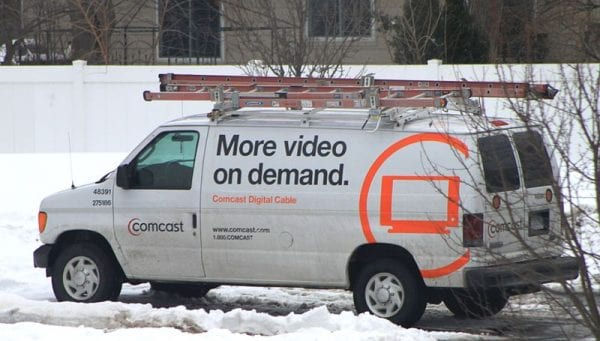
A La Carte Gives Consumers Less Choice At A Higher Cost
Taxpayers Protection Alliance
May 24, 2013

Photo courtesy of Dwight Burdette
With much attention in Congress focused on the Farm Bill, Marketplace Fairness Act, and Immigration there are some issues that fly under the radar. One such issue that is experiencing a renewed push is the call for government-mandated “A la carte” programming. Introduced by Sen. John McCain (R-Ariz.), The “Television Consumer Freedom Act,” which would pressure cable companies to provide “a-la-carte” programming, would change the way in which cable providers do business. The legislation is designed to force cable television providers like Verizon and Comcast to alter their pricing and plans in an effort to provide “greater choice” and lower cost to customers who don’t want to pay for a bundle that includes hundreds of channels they may or may not want. In bringing this legislation to the forefront, he stated that it “is about giving consumers more choices when watching television.” In reality, “a-la-carte” programming is bad for the consumer and not an issue that an already over-burdened Congress should be wasting time on.
Sen. McCain was one of the original proponents of “a la carte” legislation going back nearly a decade ago, but at some point his push faded… but now it appears to have made a comeback and he is once again turning his sites on getting an “a la carte” pricing bill through Congress. Sen. McCain continues to argue that passing this legislation would lower the price for consumers and allow them to have greater choice over the services they purchase.
Nearly a decade ago, the U.S. Government Accountability Office said that moving to “a la carte” could potentially “cost providers advertising revenues that would result in an increase in subscriber fees.” The cost isn’t the only thing that would be adversely impacted, the notion of “choice” also would be in danger. With the unbundling of channels, costs for making available specific channels would increase as the audience size for particular channels decreases. What is worse is that some channels may never even have the chance to be launched in this new system as many new channels are included in bundling and grow popular only after having been introduced as part of an all-inclusive cable package. The issues of cost and choice are very much a part of this debate, but the reality seems to be that the cost will be greater and the choice will be smaller.
Many free-market advocates have raised opposition to McCain’s efforts on his legislation calling attention to the potential damage it could have to consumers and providers. In a letter to the Senate Commerce Committee, Americans for Tax Reform urged Senators to oppose the legislation saying, “While this legislation seeks to broaden consumer choice and lower monthly cable bills, it fails to take into account that consumers can already choose from a litany of video services. Consumers can purchase programming from a traditional local cable operator, like Time Warner Cable or Cablevision; from a telephone company, such as AT&T U-verse or Verizon FiOS; from a satellite company, like DirecTV or Dish; or from any one of a growing number of “over-the-top” providers, such as Netflix, Amazon, Apple, Hulu, and YouTube.” Choice is one of the strongest arguments because consumers today have a great deal of options when it comes to programming. The days are long gone when consumers had to decide between one or two providers. Consumers have many choices such as satellite, Netflix, and Hulu. In fact, all you need now is a television and an internet connection.
The reemergence of McCain’s efforts on this issue have also spurred renewed opposition from a variety of sources, some you wouldn’t expect, who have argued that this type of legislation would do far more damage to the consumer than the stated goals in mind. Matty Yglesias of Slate writes that “a la carte” programming “starts with a fundamental misunderstanding: the delusion that if your basic package contains plenty of channels you never watch, you’re paying for many channels you don’t watch. It’s understandable that people would think in those terms, but it’s wrong.”
There is no way to know how far this fight will go, but as of now there is no new evidence to suggest that Senator McCain’s legislation is any more needed (or supported) than when he first attempted to pass this type of legislation nearly a decade ago. What has changed however is that consumers today have far more choices than they did years ago when this issue first came to the table.
The Taxpayers Protection Alliance will continue to support the free market approach to consumer choice rather than unnecessary government intervention. Mandated “a la carte” programming is the wrong solution to a non-existent problem.
